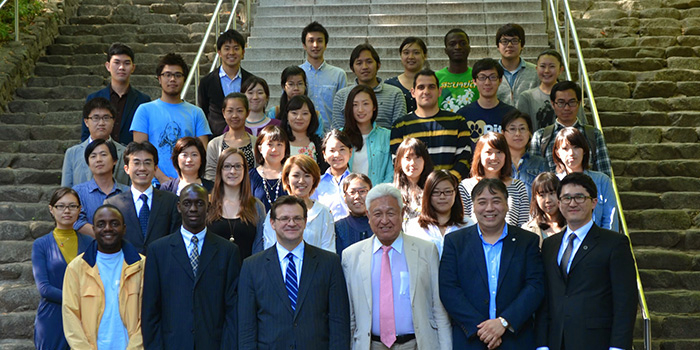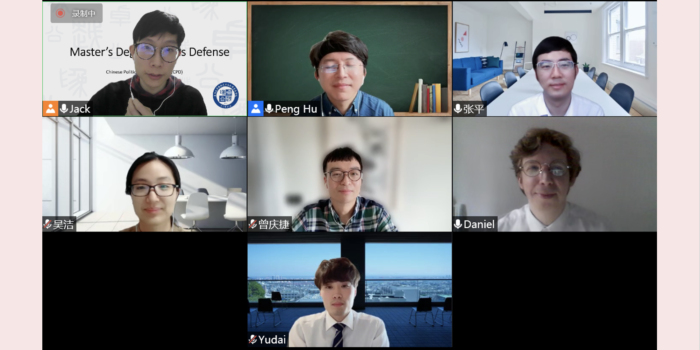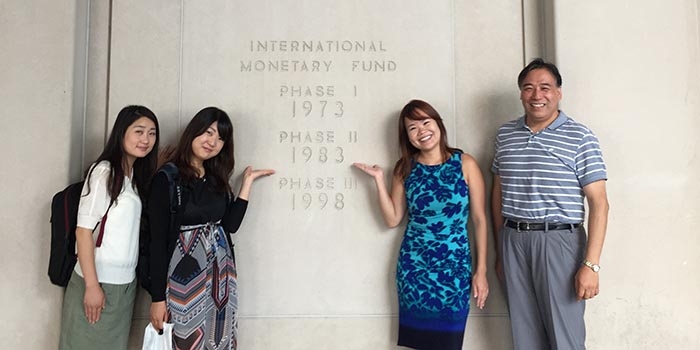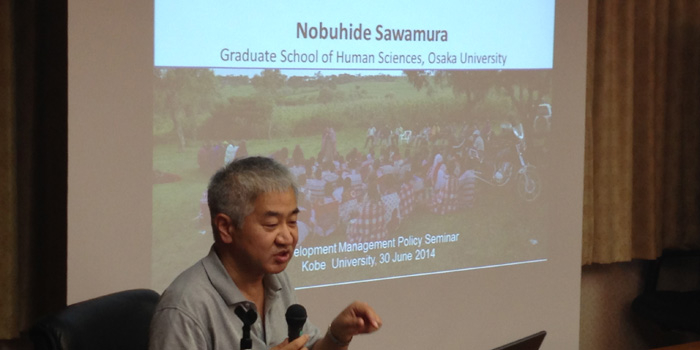On May 2nd, Kobe University’s Graduate School of International Cooperation Studies (GSICS) held the first seminar on the JSPS Core-to-Core Program’s seminar. The theme of the seminar was “Prospects on Education Policy in Developing Countries: From International Education Cooperation Perspectives”, and more than fifty researchers including graduate students participated.
 In the beginning of the seminar, Professor Keiichi Ogawa, Coordinator of the Project, presented the overview of Kobe University’s Asia-Africa Science Platforms Project by explaining the objectives, scope, activities, team members inside/outside of Japan, and this year’s implementation plan. The seminar consists of the following two parts: 1) Education Benchmarking for Comparative Policy Analysis; and 2) International Education Cooperation on Post EFA.
In the beginning of the seminar, Professor Keiichi Ogawa, Coordinator of the Project, presented the overview of Kobe University’s Asia-Africa Science Platforms Project by explaining the objectives, scope, activities, team members inside/outside of Japan, and this year’s implementation plan. The seminar consists of the following two parts: 1) Education Benchmarking for Comparative Policy Analysis; and 2) International Education Cooperation on Post EFA.
In the first session, Dr. Harry Patrinos, Education Sector Manager at the World Bank Headquarters, delivered his presentation on “Comparative Policy Analysis based on Education Benchmarking”. He mentioned a program that the World Bank has been working on to develop a tool called “SABER” (System Assessment and Benchmarking for Education Results) to analyze education systems. He also introduced some examples of cases SABER have been used and its future prospects. After Dr. Patrinos’ presentation, Prof Keiichi Ogawa presented his paper on “Myanmar Teacher Education Policy: Evidence from System Approach for Better Education Results”. Professor Ogawa analyzed the current Myanmar’s teacher education policy by using the SABER framework, which includes recruitment/employment and teachers’ workload and autonomy.
 In the second session, Dr. Ki-SeokLee, Researcher at Seoul National University, presented details of the World Education Forum which will be held in Incheon, South Korea in 2015.Then, Dr. Ki-SeokKim, Emeritus Professor, Seoul National University, delivered a presentation on education development in Korea and possibilities of international education cooperation of post EFA focused on bottom-up approach and non-formal education, based on his rich experiences through education NGO’s (Education Without Borders: EWB) activities in Burkina Faso. Moreover, Mr. JejeOkurut, Senior Education Policy Officer in the Ugandan Ministry of Education and Sports (MOES), talked about the progress of EFA in Sub-Saharan Africa and education development agendas of post EFA based on previous efforts. Lastly, Dr. Patrinos summarized what international organizations, including the World Bank, have been discussing in order to set goals for post EFA and the roles of SABER.
In the second session, Dr. Ki-SeokLee, Researcher at Seoul National University, presented details of the World Education Forum which will be held in Incheon, South Korea in 2015.Then, Dr. Ki-SeokKim, Emeritus Professor, Seoul National University, delivered a presentation on education development in Korea and possibilities of international education cooperation of post EFA focused on bottom-up approach and non-formal education, based on his rich experiences through education NGO’s (Education Without Borders: EWB) activities in Burkina Faso. Moreover, Mr. JejeOkurut, Senior Education Policy Officer in the Ugandan Ministry of Education and Sports (MOES), talked about the progress of EFA in Sub-Saharan Africa and education development agendas of post EFA based on previous efforts. Lastly, Dr. Patrinos summarized what international organizations, including the World Bank, have been discussing in order to set goals for post EFA and the roles of SABER.
After each session, a very active discussion followed, and young researchers were able to ask questions to the speakers to learn more about issues, policies, and actual implementation related to international education development and cooperation.
Related Links
http://www.kobe-u.ac.jp/en/NEWS/event/e2014_05_02_01.html
http://gsics-core2core.com/?galleries=jsps-seminar-1
Related








